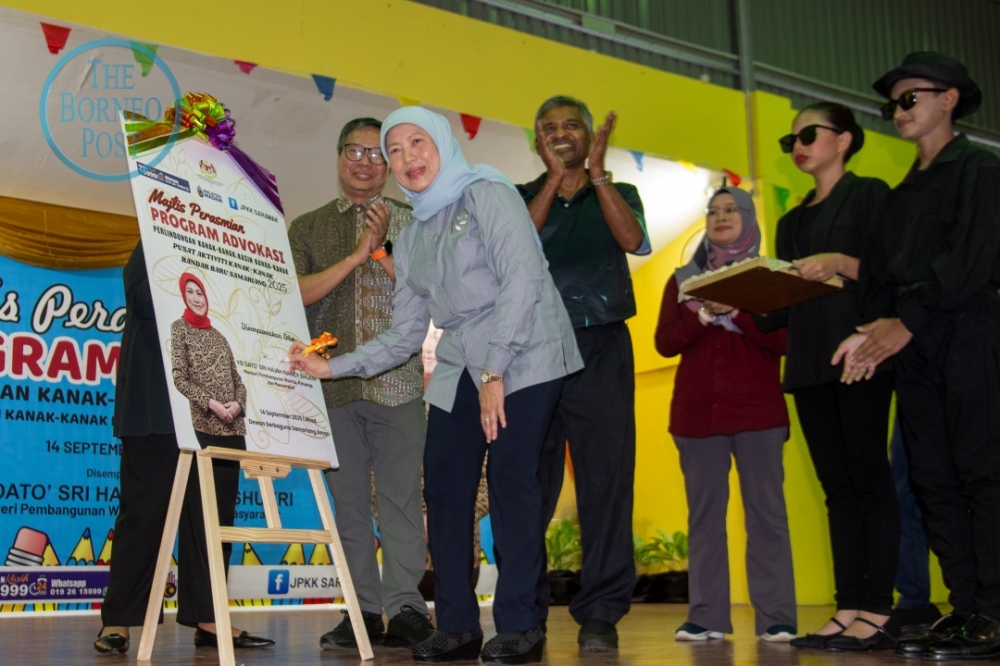KUCHING, Sept 14 — The federal government, through the Ministry of Women, Family and Community Development, plans to amend the Sexual Offences Against Children Act 2017 (SOACA) this year to better address online child sexual exploitation in the face of new and emerging digital threats.
Minister Datuk Seri Nancy Shukri said the move was crucial as predators increasingly exploit technology to groom children, extort them sexually, and circulate exploitative materials.
“When you talk about online cases, paedophiles are becoming very active as well. We are working closely with the police and the Malaysian Communications and Multimedia Commission (MCMC) to tighten the law. But more needs to be done.
“It has not been finalised yet — the process is still ongoing,” she told reporters after officiating at the Child Protection Advocacy Programme: Love for Children in Samariang Aman here today.
Nancy said the government hoped to complete the amendment this year, though much would depend on Parliament’s legislative schedule.
“Each ministry is requesting space to table its respective Bills. We want it done by year-end, but we cannot say for certain,” she said.
She stressed that any reform must undergo wide consultation, involving not only federal agencies but also state governments and non-governmental organisations (NGOs).
“Whenever we propose amendments, we must involve the states and NGOs. We do not want to pass a law without them knowing what is happening.
“Many NGOs want to be involved, and they have the right to be, especially in today’s social media environment,” she said.
Nancy added that legal reform alone was not enough, emphasising the need for a whole-of-society approach to protect children.
She highlighted the importance of Child Activity Centres (PAKK), which act as community hubs where children, parents, teachers, and local residents can participate in prevention and awareness programmes.
“That is why even our advocacy today includes PAKK, which extends into the community. We also work with the Ministry of Education and the police because this effort cannot be done in isolation,” she said, noting that more than 50 students in Samariang Aman had registered as PAKK members.
She explained that while schools play an important role, community-based centres allow for broader participation.
“Programmes like this cannot only be done in schools. Space is often limited and parental involvement is not always strong.
“In PAKK, however, you see real community participation,” she added.
Nancy also clarified misconceptions about her ministry’s role, pointing out that its jurisdiction ends once cases are handed over to enforcement agencies.
“People may not know that our involvement ends when a case goes to the police. From there, police procedures take over and we cannot interfere.
“That is why we do this advocacy work — so that the public has proper guidance,” she said.
She added that the ministry must know where to “draw the line”, particularly in cases involving schools.
“When incidents happen in schools, for example, we have to hand them over to the Ministry of Education.
“People may not always understand this, but it is important to know where the boundaries are,” she said.
Also present were Deputy Director (Federal) of the Sarawak state Social Welfare Department, Mohammad Ali Taib; Senior Assistant Director of the National Population and Family Development Board Sarawak, Nadia Amiza Suhaili; Kuching Divisional Child Protection Team Deputy Chairman John Selvaraj Perumal; and other distinguished guests. — The Borneo Post






